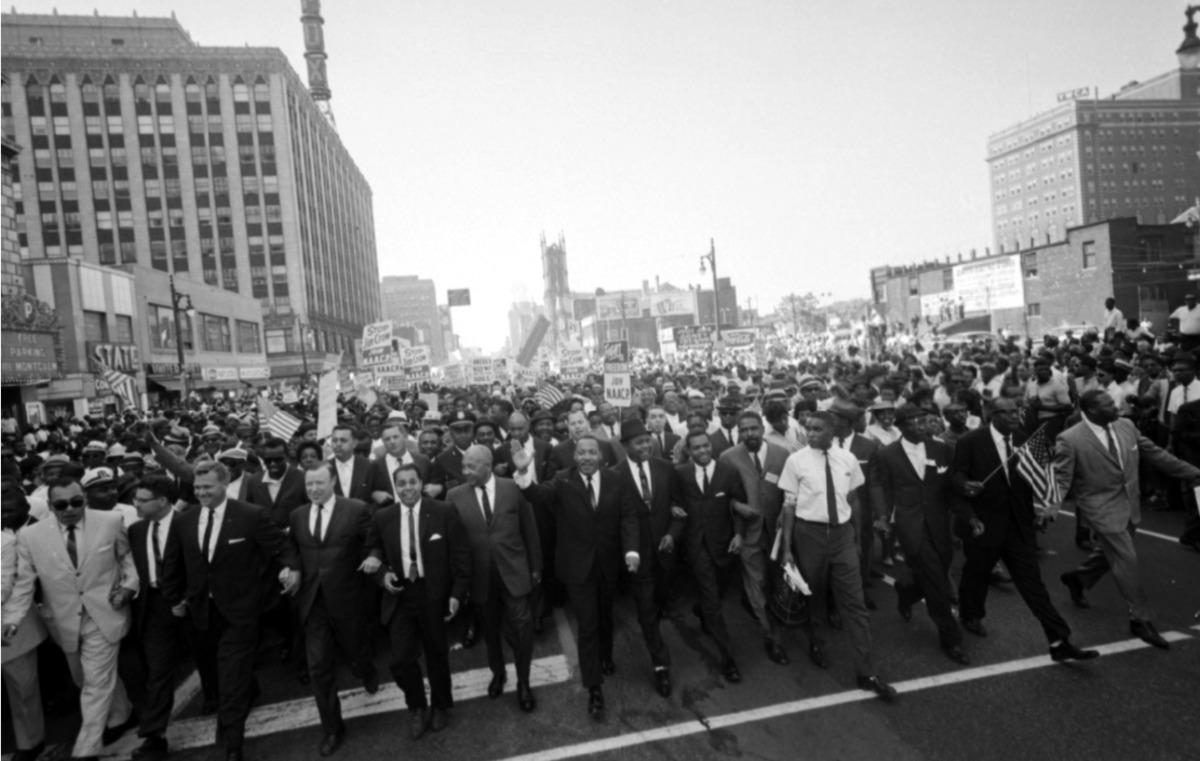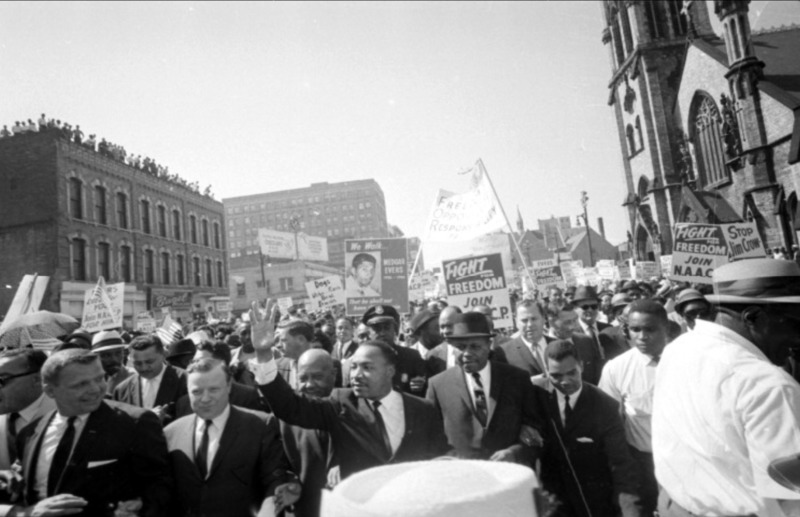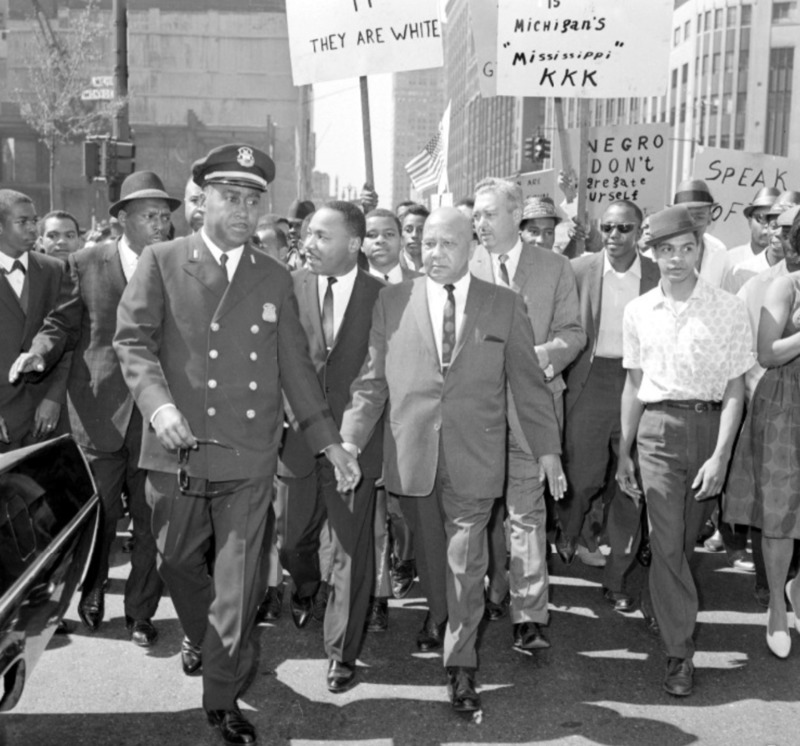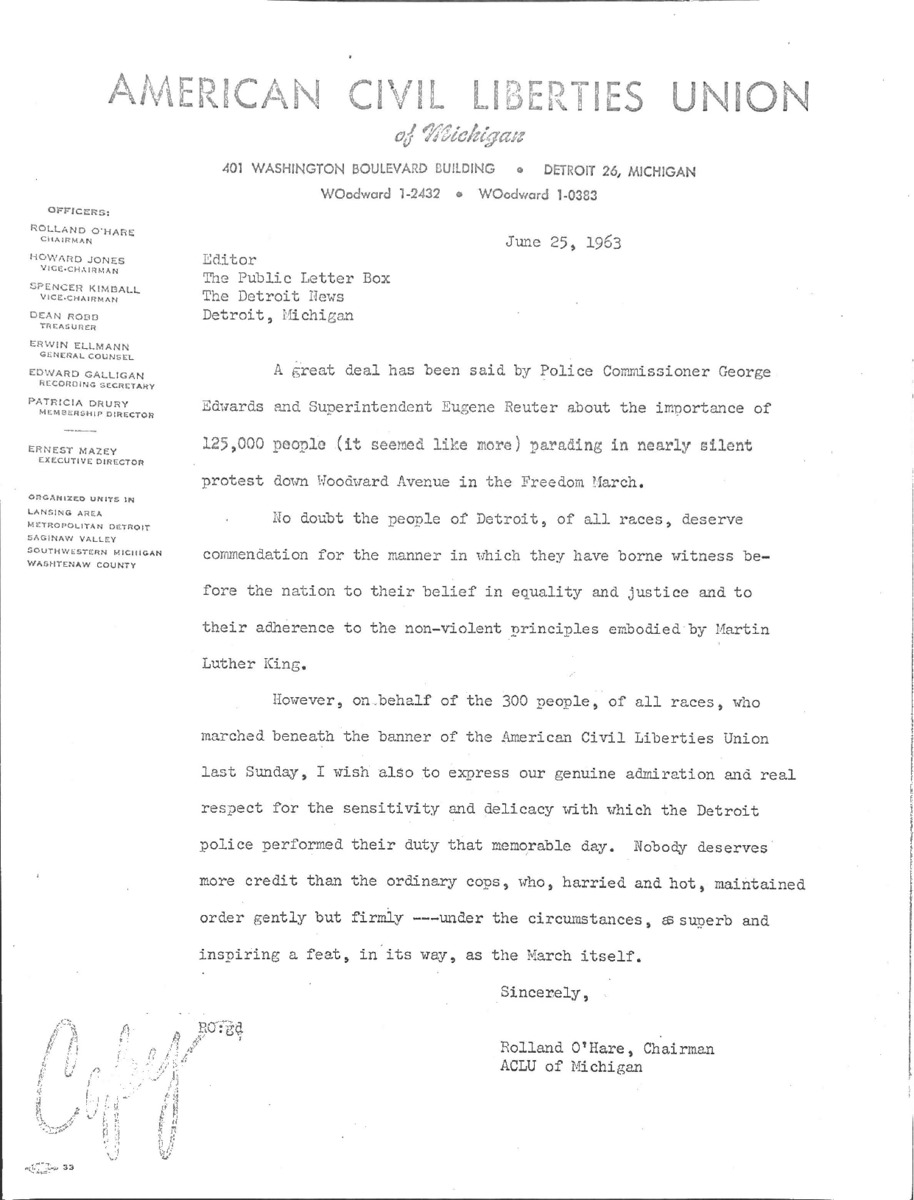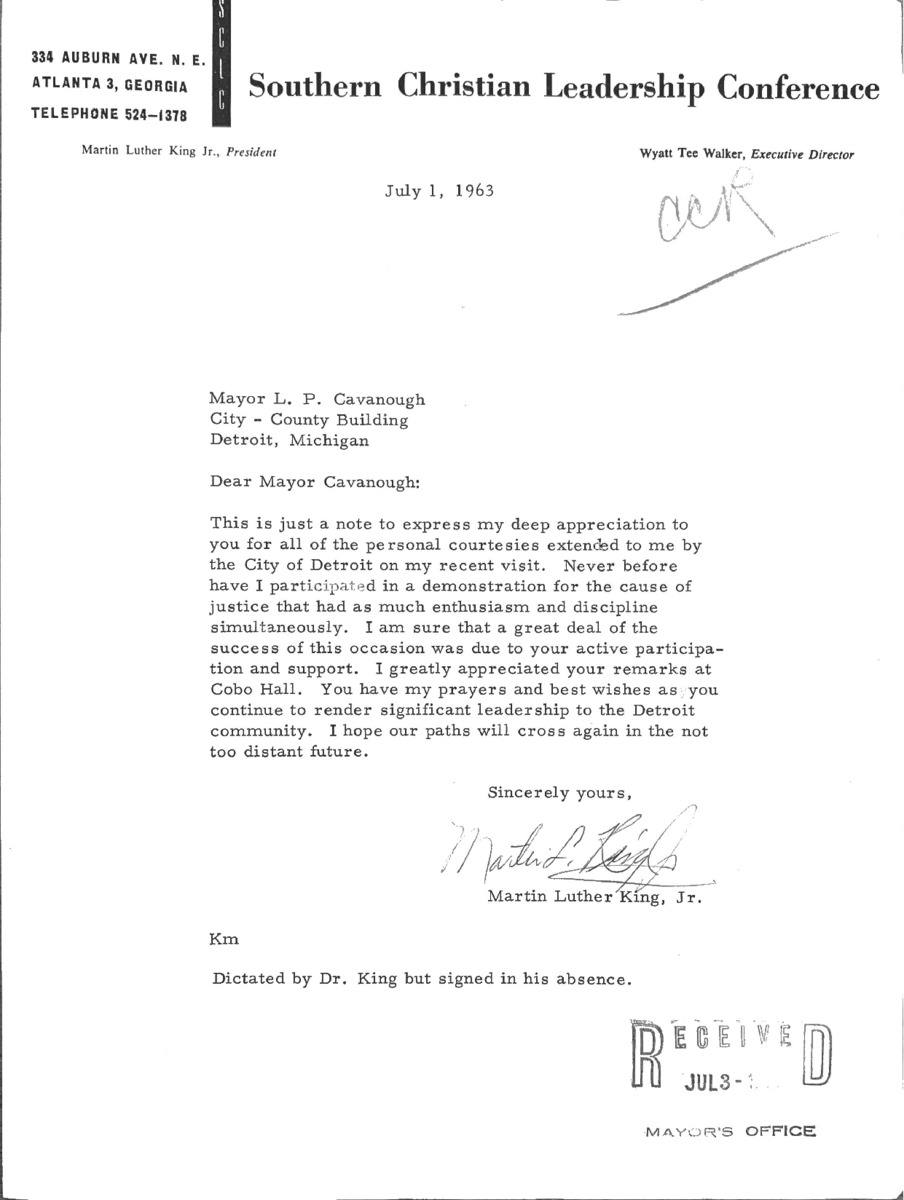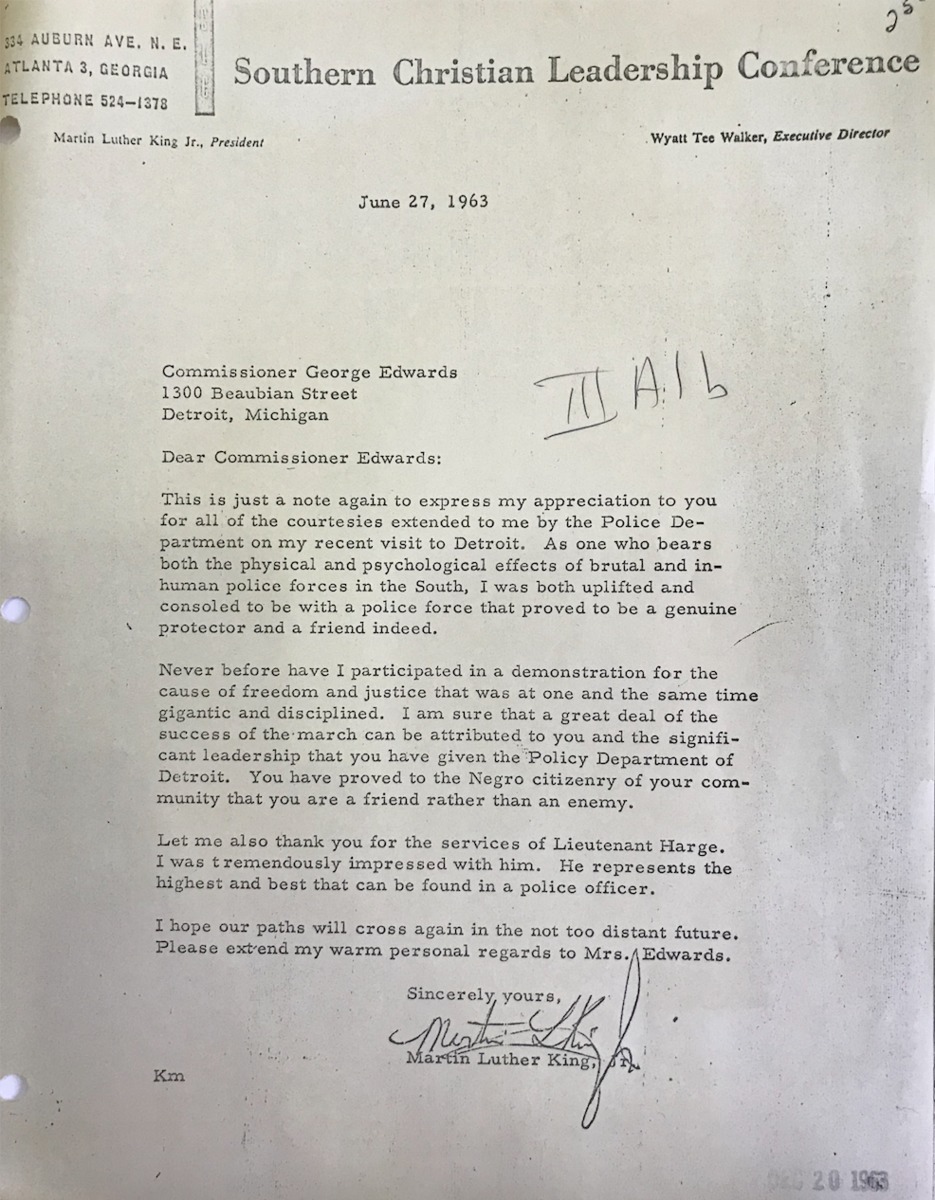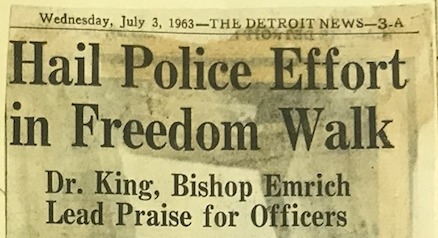Walk for Freedom
The Summer of 1963 poses as an interesting juxtaposition between the progress of police and community relations and the ultimate derail of police and community relations. In June 1963, Martin Luther King commended the Police Department for successfully supporting a massive Civil Rights March through the city of Detroit. Just one month later, the Police Department was deeply scrutinized, criticized and protested by the people of Detroit over the unjust murder of Cynthia Scott.
Overview
On June 23, 1963, Detroit hosted the largest Civil Rights March to date. Over 100,000 people peacefully marched down Woodward avenue. Dr. Martin Luther King and other Civil Rights leaders lead the march. The march made Detroit an exemplary city for police and community relations.
Success of the March
The Detroit Free Press and Detroit News wrote numerous articles about the success of the March and how excellent Edwards' police force acted in maintaining safety. They walked with Martin Luther King at the front of the march, never used uncessecary force for any of the participants, and seemed to act in support of the participants. Before the march, the FBI surveilled known hate groups to ensure that the march would go as smoothly as possible. To the nation, the Detroit Walk for Freedom was an example of how the government, police and Civil Rights protesters could work together. The FBI's and police efforts were applauded by the public, and the participants of the march felt the walk was successful because it peacefully raised awareness for their cause.
Dr. Martin Luther King and ACLU Leaders Praise Detroit Police Department and Cavanagh
The documents below show how civil rights leaders were pleased with the Detroit Police Department's cooperation. Most notable is Martin Luther King, Jr.'s letter to Detroit Police Commissioner George Edwards written on June 27, 1963. In the letter Dr. King commends Commissioner Edwards for the police efforts during the June 23, 1963 Civil Rights March in Detroit. Over 100,000 people marched with Dr. King in a non-violent protest through Detroit in June of 1963. While Civil Rights groups in Detroit and many Detroit residents saw major problems with police community relations, Dr. King was impressed with Commissioner Edwards’ department. He wrote to Edwards, he "was both uplifted and consoled to be with a police force that proved to be a genuine protector and a friend indeed." To the nation, the success of the Civil Rights March in Detroit made Detroit an exemplary city for police relations. Local Newspapers reported on the success of Edward's department.
Northern Racism
While the Walk for Freedom was a success, the walk exemplified that the South was not alone in its racist treatment of African Americans. In Martin Luther King’s speech, he describes housing discrimination and school segregation as some of the main race issues in the North. Dr. King described siscrimination through unjust hiring practices as one of the main issues in the North. Violence against African Americans was not considered to be as destructive in the North as it was in the South, at least according to Martin Luther King and other national Civil Rights Leaders.
Local vs. National Civil Rights Efforts
Detroit Civil Rights leaders, specifically in the ACLU and NAACP, had long argued that police brutality was a major injustice in Detroit. The march was not in fact an example of police and community relations, but an aberation. Detroit had a long history of poor police and community relations. Martin Luther King's letter commending Commissioner Edwards' shows a disconnect with the national and local Civil Rights movements.
Sources:
Detroit News Photography Collection, Walter P. Reuther Library, Wayne State University
The Jerome Cavanagh Collection, Walter P. Reuther Library, Archives of Labor and Urban Affairs, Wayne State University
Detroit Commission on Community Relations (DCCR) / Human Rights Department Records, Walter P. Reuther Library, Archives of Labor and Urban Affairs, Wayne State University
The Michigan Chronicle, June 15, 1963
The Detroit News, June 24, 1963
The Detroit News, July 3, 1963
Detroit Free Press, June 24, 1963

